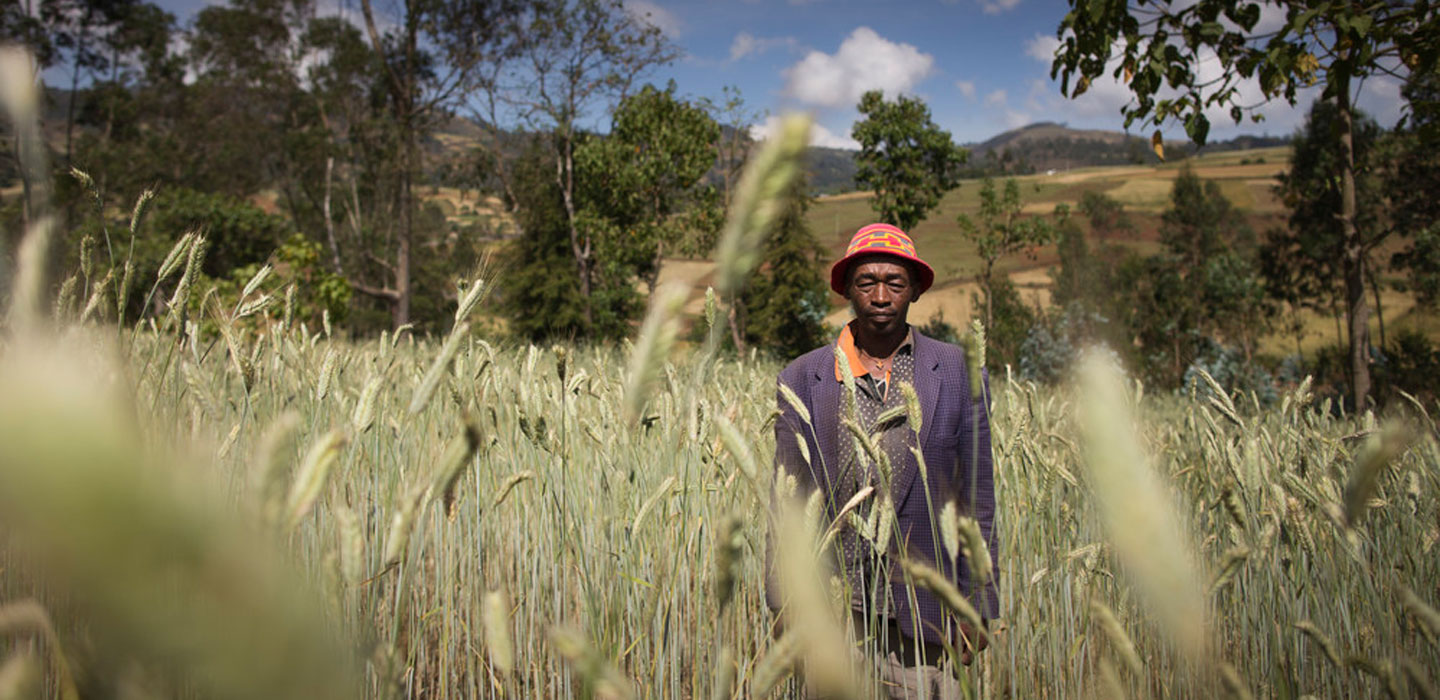Agriculture is not just a contributor to climate change. It is an essential part of the solution - IFAD’s reaction to the latest IPCC report.
IFAD Asset Request Portlet
Asset Publisher
Agriculture is not just a contributor to climate change. It is an essential part of the solution - IFAD’s reaction to the latest IPCC report.
Estimated reading time: 2 minutes
Once again, the latest IPCC report, Climate Change 2022: Mitigation of climate change, hammers home the urgent need to take transformative action in order to respond to the climate crisis. While we can no longer avoid climate change—in fact we are already witnessing its effects—there is much more we can do to limit its impacts.
While agriculture is often cited as a major contributor to climate change, it is time we “start viewing it as an essential part of the solution,” according to IFAD’s Associate Vice-President for the Strategy and Knowledge Department and climate expert, Dr. Jyotsna Puri.
“With the right practices, small-scale farmers in developing countries can protect soils, ecosystems, and biodiversity and play an important role in storing carbon,” explains Puri.
The IPCC report highlights that sustainable mitigation actions in agriculture, forest, and land use can deliver large-scale emission reductions and enhanced removals. These mitigation options are cost effective and can be implemented at scale.
Small-scale farmers produce as much as 80 per cent of the food in developing countries. To effectively mitigate climate change, we must therefore help small-scale farmers adapt to climate change and build their long-term resilience.
In over 80 countries around the world, IFAD is doing just that. Not only do we promote approaches that mitigate emissions, we also support nature-based solutions and climate smart practices that build climate resilience, reduce or avoid emissions, and sequester carbon.
One example of this is IFAD’s Adaptation for Smallholder Agriculture Programme which aims to sequester 60 million tons of CO2 equivalent over 20 years—this is about the same weight as 60 million great white sharks!
Despite their essential role in feeding the world, just 1.7 per cent of climate finance reaches small-scale producers. In response to this, IFAD recently launched the ASAP+ climate adaptation fund. Through this programme, IFAD aims to raise $500 million to support 10 million small-scale farmers build their resilience to climate change.
The IPCC have reiterated the need to limit global warming to 1.5°C. To do this, “we need to significantly increase investments in nature-based solutions and promote sustainable agriculture techniques, while conserving and restoring forests, mangroves and peatlands, which have a strong mitigation potential,” explains Puri.
With 63 per cent of the world’s poorest people working in agriculture—and primarily on small farms—agricultural climate adaptation measures can not only mitigate the effects of climate change, but they can also benefit biodiversity and secure livelihoods, food, water, and wood supplies for poor rural people around the world.
Explore IFAD’s work on Climate and the environment. Read our reaction to the previous IPCC report.
Publication date: 04 April 2022